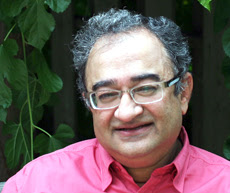Friends,
Sheila Copps is former Deputy Prime Minister of Canada who writes a regular column in the Toronto newspaper, The National Post. Ms. Copps is known as being on the Left of the current ruling Liberal Party and has had close working relationshipwith the Muslim community.
In her latest column, Sheila Copps has attacked the recent proposal tolegitimize Shariah base arbitration in Canada's largest province, Ontario.
She writes:
"The real question untouched in the Boyd report is why civil society wouldagree to religious arbitration -- Muslim, Jewish, Christian or anythingelse -- in the first place. Have we really done all we can to examine families' experiences since such processes were given the green light inOntario, including how many arbitrations have resulted in decisions acceptedby economic dependents with few real choices? Or is this really aboutfinding a quick solution to the backlog in our courts?"
Read and reflect.
Tarek Fatah
-----------------------------
December 24, 2004
Sharia law is a
danger to women
Sheila Copps
The National Post
http://tinyurl.com/5ac33
The report released this week recommending the use of Sharia law in Islamic family disputes in Ontario should send a shiver down the spines of women across the country.The report's author, former Ontario attorney-general Marion Boyd, recommends widening the scope of current arbitration legislation allowing consenting parties to avoid court by choosing mediation or arbitration.
Specifically, she advocates broadening the provisions of the provincial Family Law Act to allow religious arbitration including -- but not limited to -- principles drawn from Sharia law.Boyd has defended her recommendation on the basis that arbitration involving Christians, Jews and Ismaeli Muslims has been successful since the process was established 13 years ago.
But that argument would be a whole lot more convincing if allowing Sharia law wasn't opposed by the Canadian Council of Muslim Women and spokespersons for the Muslim Canadian Congress.Boyd contends that it's offensive to suggest Muslim women are less capable of making choices than women of other faiths, and that because members of other religions have the option of mediation or arbitration, Muslims should not be excluded.
What's needed, she suggests, is public education to ensure Muslim women understand "the consequences of choices."What hogwash. The problem is not with women failing to know about or understand their choices -- it's with economic, religious and familial pressures depriving them of those choices in the first place.
Boyd has failed to examine whether religious arbitrations meet the test of fairness. Does she really believe that a penniless mother with four or five children, no Canadian work experience and limited English or French language skills has choices?
Is she naive enough to think there are choices when one party (usually male) holds all the economic power and the other party lives in a dependent situation? When marriages dissolve, that balance of power becomes even more precarious -- which is why a civilian legal system is critical.The real question untouched in the Boyd report is why civil society would agree to religious arbitration -- Muslim, Jewish, Christian or anything else -- in the first place.
Have we really done all we can to examine families' experiences since such processes were given the green light in Ontario, including how many arbitrations have resulted in decisions accepted by economic dependents with few real choices?
Or is this really about finding a quick solution to the backlog in our courts?Even aside from faith-based decisions and processes, secular society has hardly eliminated gender inequality: It starts when we're young and continues through all aspects of life, from the classroom to the boardroom and from the home to the House of Commons.
Throw in the volatile mix of religion and the law and you have a Molotov cocktail that could blow up at any time.A few months ago, I watched a powerful television documentary exploring the lives of women living in a British Columbia religious commune where their leader went through wives like hors d'oeuvres at a Christmas party. One woman fled and was working to save those left behind, but repeated attempts to engage authorities -- from the local police to the judiciary -- achieved little. All were sympathetic, but they were either unwilling or unable to save women from physical and sexual oppression in the name of religion.
A personal experience, too, offered ample evidence of the dangers of taking religious freedoms to the extreme. As a Member of Parliament, I was once involved in helping a woman whose children were spirited out of the country during a bitter divorce proceeding. Citing cultural and religious differences, her ex-husband fled with their children to his native Pakistan despite an outstanding Canadian court order requiring the children to remain in Canada.
Working with a private investigator and the Foreign Affairs Department, she tracked the children down and went to Pakistan to retrieve them. The only thing she received for her efforts was a severe beating at the hands of her husband's family.
A Canadian court decision could not protect the woman or her children. At the time, I wrote to two dozen family members who were in contact with the children, asking for their help in securing a safe return to Canada. But all of them, including the current president of a local Muslim organization, remained silent -- and that mother has never again seen her kids.
There is no sugar-coating it: Those children were kidnapped in the name of culture and religion.The B.C. commune and the ordeals of that mother are but two examples of how faith-based traditions and customs can clash with the values and principles our civil laws strive to defend.
With the scales of justice already weighted in favour of the family breadwinner, why risk a further erosion of women's rights in the name of religion?
Subscribe to:
Post Comments (Atom)

No comments:
Post a Comment